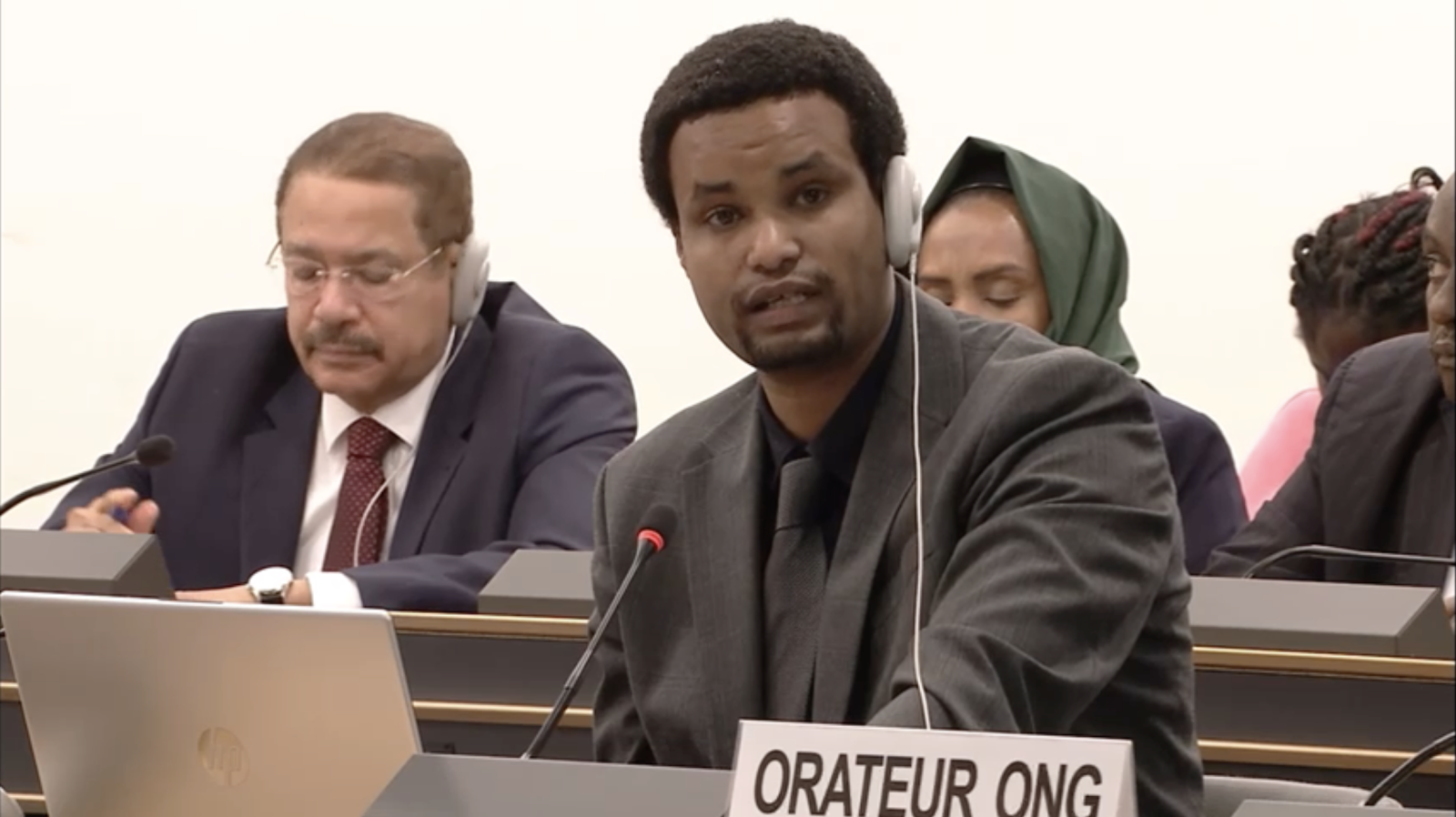Group of Independent Eminent Experts on the Implementation of the Durban Declaration and Programme of Action
Statement with the International Organization For the Elimination of All Forms of Racial Discrimination and Geneva International Centre for Justice
Delivered by Namrata Hazarika
8 August 2022
Thank you, for the recognition,
I am Namrata Hazarika representing the International Organisation for the Elimination of All Forms of Racial Discrimination (EAFORD) and Geneva International Centre for Justice (GICJ). We start by firstly thanking the convening of this session, the insightful presentations and appreciating the work of the experts in assessing the implementation of the Durban Declaration and Programme of Action. We would also like to highlight the importance of the Durban Declaration as a visionary document to combat and break the (self) perpetuating cycle of systemic racism. The reformation brought by the DDPA has defied discriminatory policies and practices.
Yet, as explained by the 2021 report of the High Commissioner, despite the progress made by the DDPA in the last 20 years, systemic racism continues to prevail. A by-product of colonialism, systemic racism includes harbouring of prejudices, xenophobia, and intolerance. Ethnic, racial, and sexual minorities continue to suffer from marginalisation, bred through structural prejudices, which in turn makes way for hate crimes. These practices have been predominantly documented among Africans and people of African descent in the form of racial profiling and police brutality.
Such racist sentiments have heightened through the Covid-19 pandemic. In this context, Asians, and people of Asian descent, particularly, have had to bear the brunt of misplaced anger and frustration that has materialised into physical abuse and emotional bullying. The pandemic has also underlined the incapability of governments to address and curb racially fuelled hindrances to access equal health services. Thus, as put by the High Commissioner, a “systemic approach” centred on accountability, repartition and trust is crucial to fighting racial discrimination. Since the inception of the DDPA, states have successfully taken measures to recognise and address the prevalence of racism within their legislative systems. Nevertheless, there continues to be a lack of accountability which in turn denies justice towards victims of such abuse. This impedes the building of trust among states.
EAFORD and GICJ acknowledge the universal accomplishments of the DDPA and urge enhanced promotion of the document in all UN languages. However, the widening gap between promise and implementation of non-discriminatory policies is concerning. Hence, we urge member states to take accountability for their role in the perpetuating cycle of systemic racism and partake in inter-state dialogues to address the impact of their historical legacies. Such constructive dialogues would not only advance the course of the said “systemic approach” but boost confidence-building among states.
Thank you!









